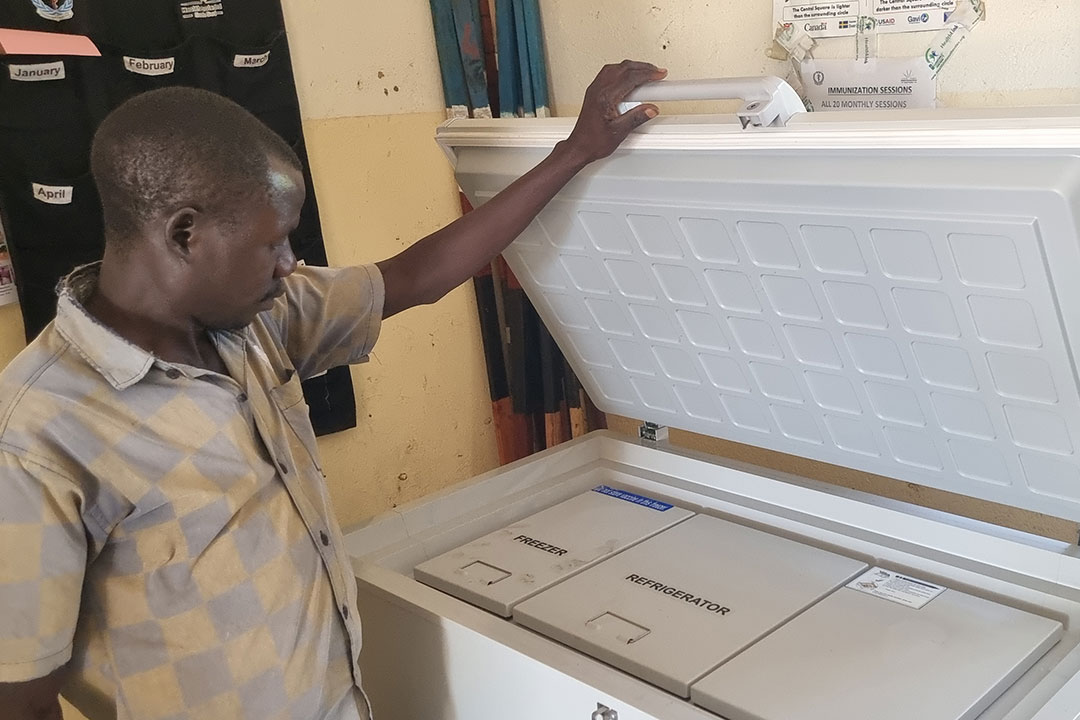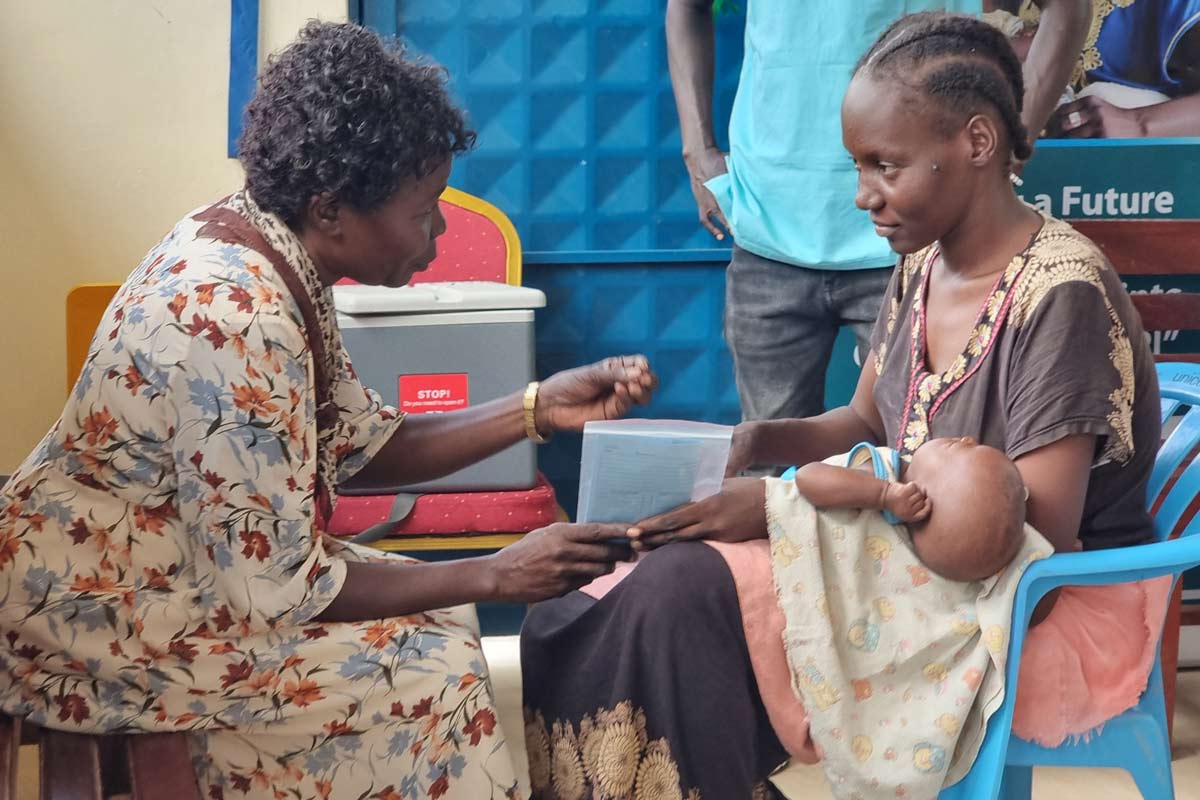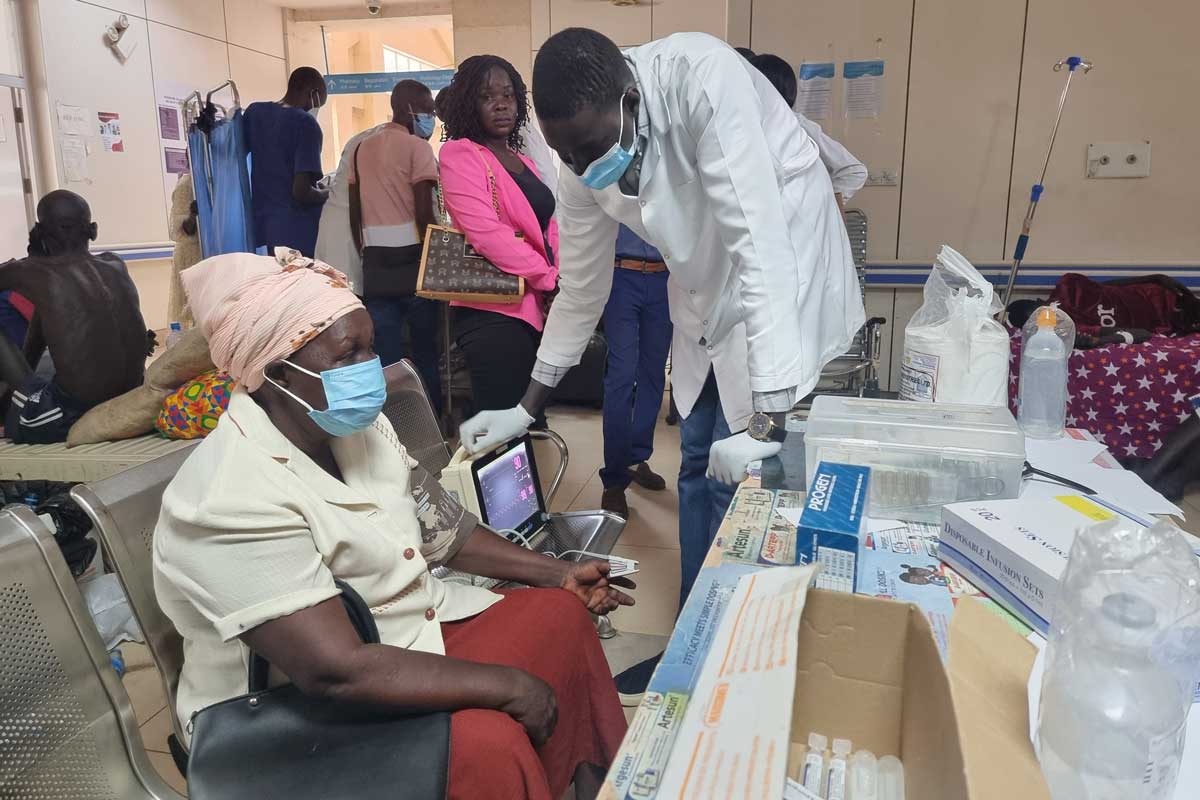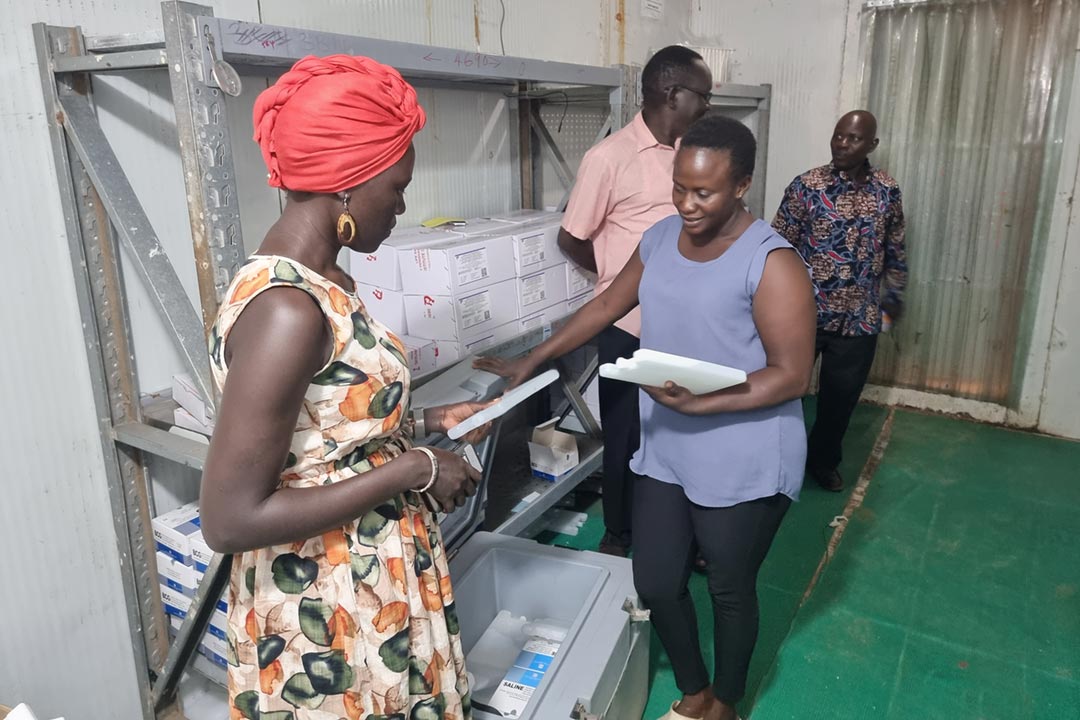South Sudan rolls out oral cholera vaccine
“I do not want to have the disease called cholera again,” say residents of historic hotspots, as uptake of preventive OCV soars.
- 1 June 2023
- 5 min read
- by Winnie Cirino
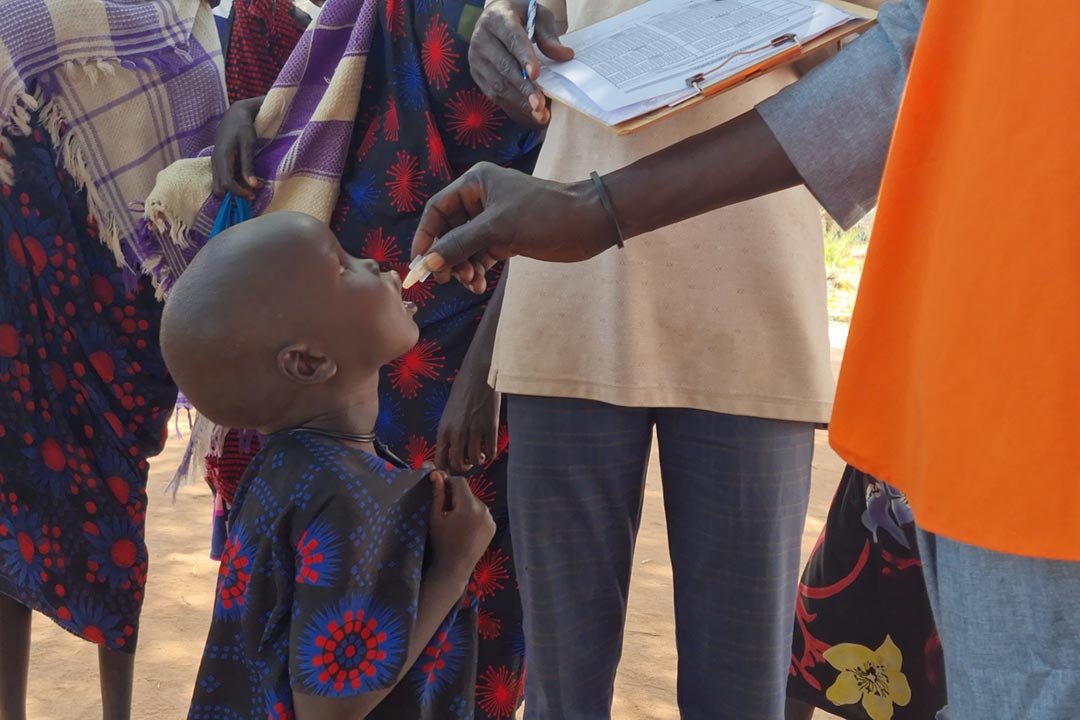
South Sudan, a country that has suffered from repeated cholera outbreaks, has taken to proactive measures to combat the deadly disease. Rather than relying on responsive roll-outs to contain epidemics once they're sparked, the country is focusing on preventive vaccination of outbreak-vulnerable areas.
“Many in the community were aware that cholera is a very dangerous disease, and our community mobilisers were able to raise that awareness, and there was a great response to vaccine take-up.”
– Christian Bester, Samaritan’s Purse South Sudan
Samaritan's Purse, one organisation supporting the distribution of vaccines in the country, launched an oral cholera vaccine (OCV) campaign in areas including Yirol East and Awerial counties of Lakes State, in April 2022, following an outbreak of the fast-spreading bacterial disease in Bentiu of Unity state last year.
Christian Bester, Country Director for Samaritan's Purse, says the Ministry of Health identified Yirol East and Awerial two among 20 'hotspot counties'. "It was decided in cooperation with the health cluster, national ministry of Health, and World Health Organization to act proactively to prevent an outbreak in these three counties.
"Awerial and Yirol are adjacent to the Nile, and there are a lot of swamps in Awerial county, so because cholera is a water-borne disease, those open water sources are risk factors for cholera outbreaks," Bester explains.
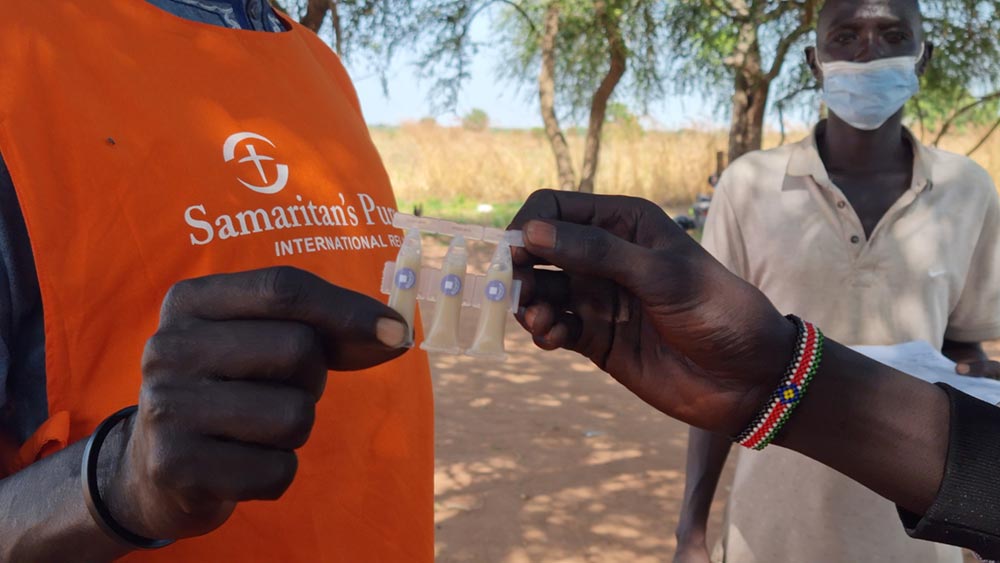
Credit: Winnie Cirino
Cholera outbreaks are increasing in frequency globally, with ten million more vaccines deployed to combat outbreaks in 2021 and 2022 than in the entire preceding decade. Gavi recently published a plan for sustainable and scaled-up vaccine supply to meet that growing demand. Though there have been adequate doses for emergency response in recent years, the aim is to create sufficient stocks for large-scale preventive vaccination, of the sort already
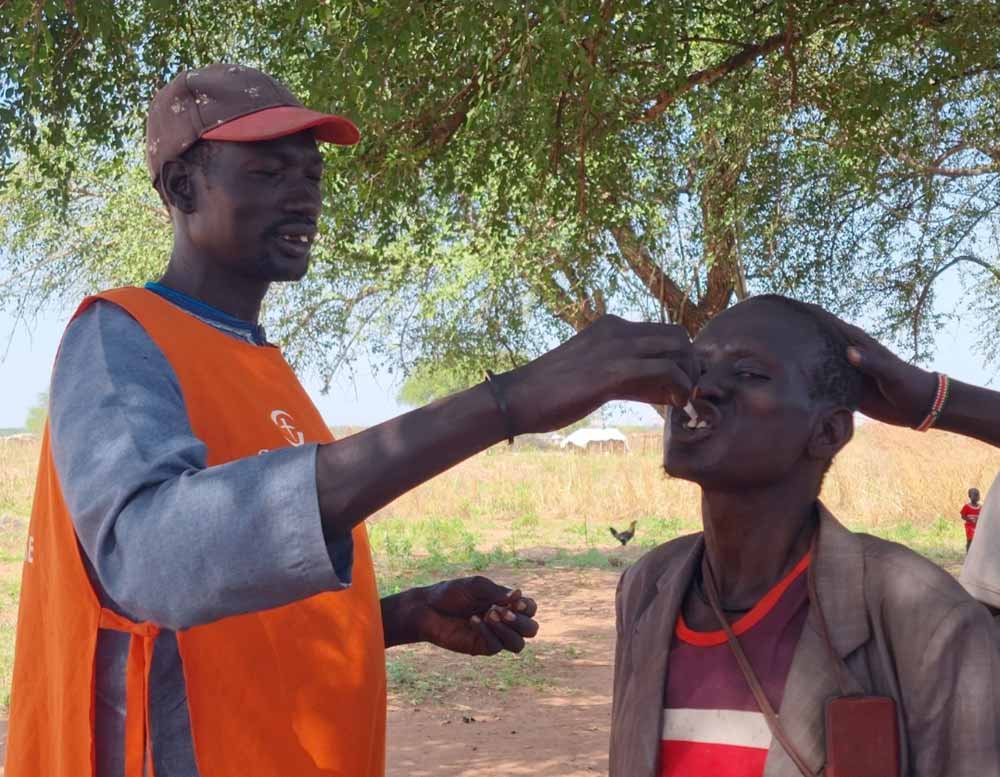
Credit: Winnie Cirino
underway in South Sudan, in vulnerable countries by 2026.
“I know how it feels to have the disease. I do not want to have this disease called cholera again. I have vaccinated my family members too, and I want to tell everyone to take the vaccine before the virus spreads.”
– Mawun Aboi, vaccinee, Awerial County
During last year's campaign, Samaritan's Purse vaccinated 104,161 adults in Awerial County – 89% of their target number for the area. Demand, the organisation found, was high. Bester said there was a keen awareness of the need for the vaccine, because of past outbreaks in the area. "Many in the community were aware that cholera is a very dangerous disease, and our community mobilisers were able to raise that awareness, and there was a great response to vaccine take-up."
Forty-five-year-old Mawun Aboi, who I met taking the vaccine in Awerial County late in 2022, had suffered from the virus in 2017.
Have you read?
"I know how it feels to have the disease. I do not want to have this disease called cholera again. I have vaccinated my family members too, and I want to tell everyone to take the vaccine before the virus spreads."
Ngong Kur, a 25-year-old woman, was at the same spot, taking the vaccine too. She complained of the taste of the vaccine, but was undeterred.
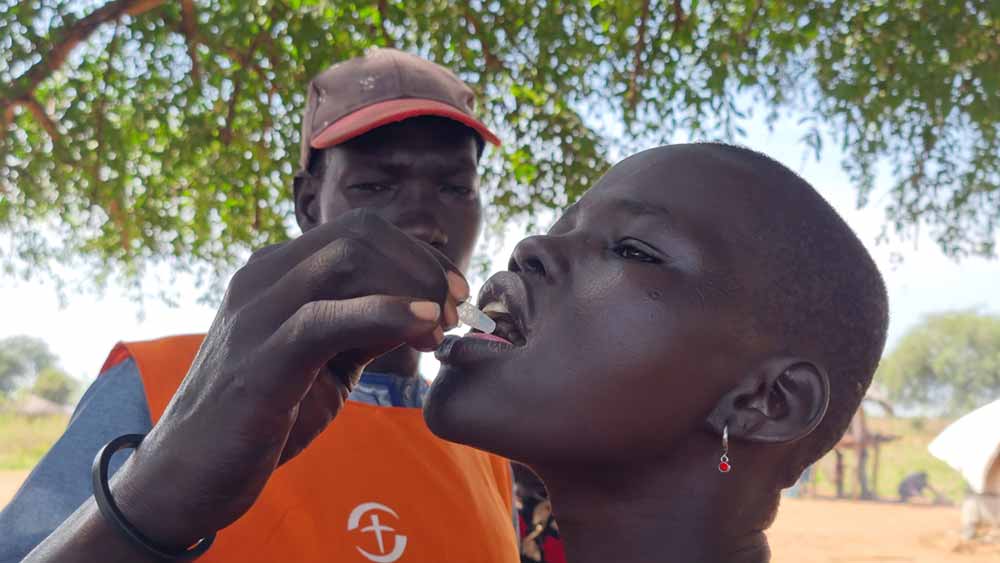
Credit: Winnie Cirino
"The medicine tastes weird, but for the sake of a safer and longer life, that is why I decided to take it."
Vaccinators like Ngong Tabany move from one home to another to vaccinate people. On the fourth day of this campaign, he and his colleagues here had administered about 1,500 vaccines in Awerial County
"The turn-up for taking the vaccine is high because our people have experienced how cholera has killed their people," he says. "There are [currently] no conditions of cholera cases here, but we are just taking to prevent any outbreak."
Some people have been refusing to take the vaccines because of the taste and smell, but Tabany says vaccinators work hard to convince them.
“The medicine tastes weird, but for the sake of a safer and longer life, that is why I decided to take it.”
– Ngong Kur, vaccinee, Awerial County
"There are people who refuse to take it because the smell is not good, but we keep encouraging them to take the vaccine because the area is very vulnerable due to stagnant water around."
Preventive vaccination helps to drive down risk. But outbreaks occasionally slip the net – and on those occasions responsive vaccination campaigns are indispensable, helping prevent outbreaks from becoming major epidemics. In March 2023, the Ministry of Health and the World Health Organization declared another cholera outbreak in Malakal town and Malakal Protection of Civilian site in Upper Nile state.
“The turn-up for taking the vaccine is high because our people have experienced how cholera has killed their people. There are [currently] no conditions of cholera cases here, but we are just taking to prevent any outbreak.”
– Ngong Tabany, vaccinator
Buyini Ernest is the state minister for health in the Upper Nile state. "The number of the patients now is 1,053 and two passed away. But three days ago to now, we have not received any new cases. This is one of the advantages of the vaccine," Ernest said, noting that the ministry targeted 70,000 people and so far, had vaccinated about 65,000 of that group.
He confirms there are vaccines in the health facilities in Malakal town and advises those who have not received the vaccines to go to the health centres and get vaccinated.
